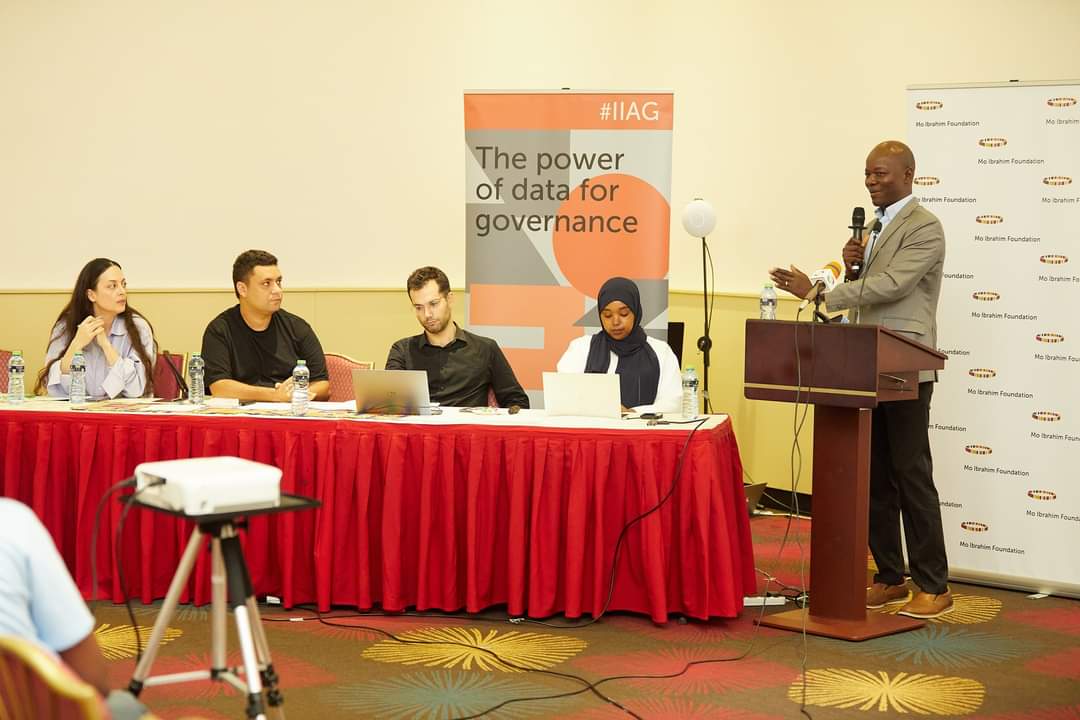
By Juliet ETEFE ([email protected])
Head-Capacity Development, West Africa Civil Society Institute (WACSI), Charles Kojo Vandyck has emphasised an urgent need for innovative and creative financing models to address the country’s widening development funding gap.
Speaking during a presentation on sustainable financing options at an ActionAid Ghana dialogue, Mr. Vandyck warned that traditional methods of funding development – through taxes, donor aid and loans – are no longer sufficient.
He said with rising public debt, limited access to credit and a growing demand for public services, new solutions are needed to bridge the country’s estimated US$9billion annual infrastructure financing gap.
“We cannot borrow our way out anymore. We must embrace innovative and creative financing solutions that are more sustainable, context-specific and inclusive,” he stressed.
He cited data showing that donor support has been declining over the years, while Ghana’s tax collection remains low due to dominance of the informal sector and weak enforcement mechanisms. As a result, government’s fiscal space continues to shrink, with a huge percentage of government revenue going into debt servicing.
To overcome this challenge, Mr. Vandyck proposed a combination of new financing models including blended finance, whereby government and donor funds are used to de-risk investments and attract private sector capital into critical areas such as health, renewable energy and education.
He also highlighted diaspora bonds and remittance-linked investments as viable options.
“We receive over US$4.7billion in remittances annually. If we create safe, trustworthy investment products for the diaspora, we can channel part of that into national development projects,” he explained.
Further, he advocated for green and blue bonds to fund climate-smart agriculture and protect water-bodies and coastlines affected by environmental degradation, particularly illegal mining. Outcome-based financing models, such as social impact bonds, were also mentioned as ways to ensure efficiency and accountability by linking investor returns to development outcomes.
Beyond the private sector, Mr. Vandyck emphasised the untapped potential of local philanthropy. He called for a national philanthropic policy to formalise and incentivise giving by individuals, alumni groups, faith-based institutions and corporate bodies.
“We have a strong culture of giving, but it is largely informal and unregulated. With proper structure and tax incentives, this could be a powerful source of development financing,” he said.
He further recommended promoting crowdfunding platforms, peer-to-peer lending and patient capital for SMEs, particularly those with innovative and impactful business models but limited access to traditional loans. Credit guarantees and fintech-enabled solutions could also help increase financial inclusion and investor confidence.
Crucially, Mr. Vandyck underscored the need for transparency and accountability to build public and investor trust. He proposed developing a user-friendly dashboard that tracks development spending in real-time, showing how funds are used across sectors and regions.
“Financing development is not just about finding new money – it is about better-using what we already have. If we can combine innovation with transparency and inclusion, we can build a more resilient and self-reliant future,” he stressed.
Dialogue
The dialogue organised by ActionAid Ghana forms part of a broader initiative to engage trusted civil society organisations in advocating for sustainable financing models.
Themed ‘Reviewing Development Financing for People and Planet: A Civil Society Government Dialogue for Systemic Reform’, the event seeks to foster critical engagement between civil society, government actors and development partners on pressing financing issues; including debt justice, illicit financial flows, progressive taxation and gender-responsive public service delivery.
This comes at a time when over 50 countries – including Ghana – are facing mounting debt and limited fiscal space.
Country Director-ActionAid Ghana, John Nkwah, explained that the event marked the organisation’s second phase of work to promote civil society dialogue on financing for development.
He stressed the importance of investing in people-centred and locally-driven initiatives such as gender-responsive public services, improved school feeding programmes and access to affordable healthcare, especially for rural communities.
“In today’s global dynamics, development means ensuring that healthcare is not only affordable but also reaches hard-to-reach communities. This includes properly equipping our facilities, investing in education and prioritising interventions that touch the lives of the most vulnerable,” he said.
Mr. Nkwah also called attention to the leakages in public finance caused by illicit financial flows and corruption, which he described as a “hard nut to crack ”.
He noted that significant funds are lost when individuals and entities move money into offshore havens, bypassing government tax systems. These funds, he said, could otherwise be used to hire more teachers, provide financial clearance for nurses and strengthen key sectors.
“When we talk about financing for development, we must also talk about blocking loopholes in illicit financial flows and fighting corruption. These are essential to making sure all available resources are directed toward development,” he stated.
In addition, he urged government to be more strategic and intentional in its engagement with bilateral and multilateral donors such as the World Bank and IMF, by ensuring that any loan facilities are channeled into productive and sustainable investments.
“We are advocating for a shift – not just in how government mobilises revenue through progressive taxation but also how it ensures that every cedi borrowed or raised is spent wisely and transparently for the benefit of all,” he emphasised.
The post Innovative financing models key to bridging development gaps – expert appeared first on The Business & Financial Times.
Read Full Story


















Facebook
Twitter
Pinterest
Instagram
Google+
YouTube
LinkedIn
RSS